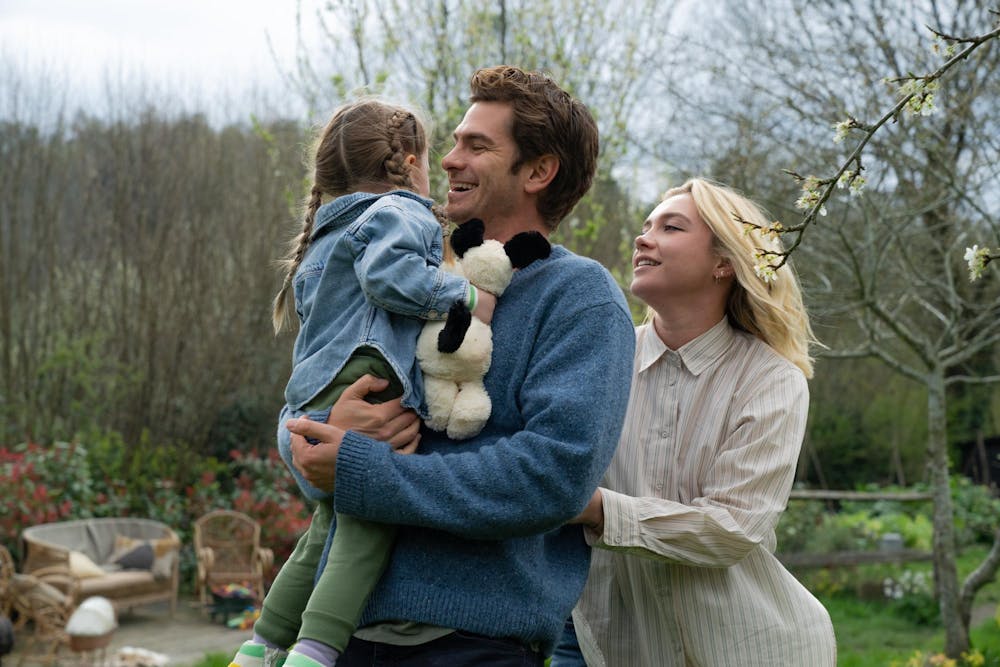It has long been a tradition of American cinema to cast the hot stars of the time to play out timeless and familiar romantic tropes, and “We Live in Time” is no different. At its core, the film, released Oct. 11, is a classic doomed romance featuring two of Hollywood’s brightest actors, Florence Pugh and Andrew Garfield delivering the perfect amount of tears, smiles and giggles.
Professional chef Almut Brühl (Pugh) hits Tobias Durand (Garfield) with her car. Not the typical meet-cute, but at the hospital, Almut offers to treat Tobias and his wife to a meal at her restaurant. There, Tobias reveals he is divorced, resulting in the two spending the night together with undeniably heartwarming results.
As the movie progresses, we see all the difficult, but moving facets of a relationship: they fall in love, disagree on whether to have children, briefly split and even navigate a cancer diagnosis. Such scenarios beautifully intertwine moments of mundanity and spontaneity to display the couple’s love and new life together.
What stands out most clearly about “We Live In Time” is the film’s non-linear narrative. The highlights of their relationship are shuffled. Scenes are placed out of order, allowing viewers to get a glimpse of key events that will only unfold later on. We know that Tobias and Almut will eventually have a daughter, even though Almut is initially adamantly against children. We know they will make-up, fall in love and resolve their issues. Most glaringly, we know from the start that Almut is going to die. Yet, even with this information, falling in love with Tobias and Almut’s story is inevitable; viewers can’t help but be drawn in as their shared life together unfolds.
“We Live In Time” starts off slow, but knowing the certainty of the couple’s fate makes the audience want to make the most out of their limited time with Pugh and Garfield. With the prior knowledge of their relationship’s doomed trajectory, we can accept and embrace the fleeting and bittersweet love they share.
The film is undeniably full of tropes. The “meet-cute,” the fight, the sickness, the proposal — these are all things that have been seen before in conventional rom-coms and tragic romances, except this time they are told through a slightly different approach. And the surface-level yet likable characters are advanced by the actors’ talents. Pugh and Garfields’ line-delivery, facial expressions and chemistry alone make every scene entertaining to watch.
“We Live In Time” does very little wrong. It delivers a powerful deception of enduring love with a couple of messy battles and moments of humor and warmth. It’s a film that invites you to feel — whether through melancholy or charm — without ever pushing too far. While it doesn’t offer much in terms of depth or complexity, there’s something refreshing in its simplistic premise. Sometimes, it’s enough to bask in a bittersweet story with beloved actors, and savor the understated allure of a doomed romantic journey.





